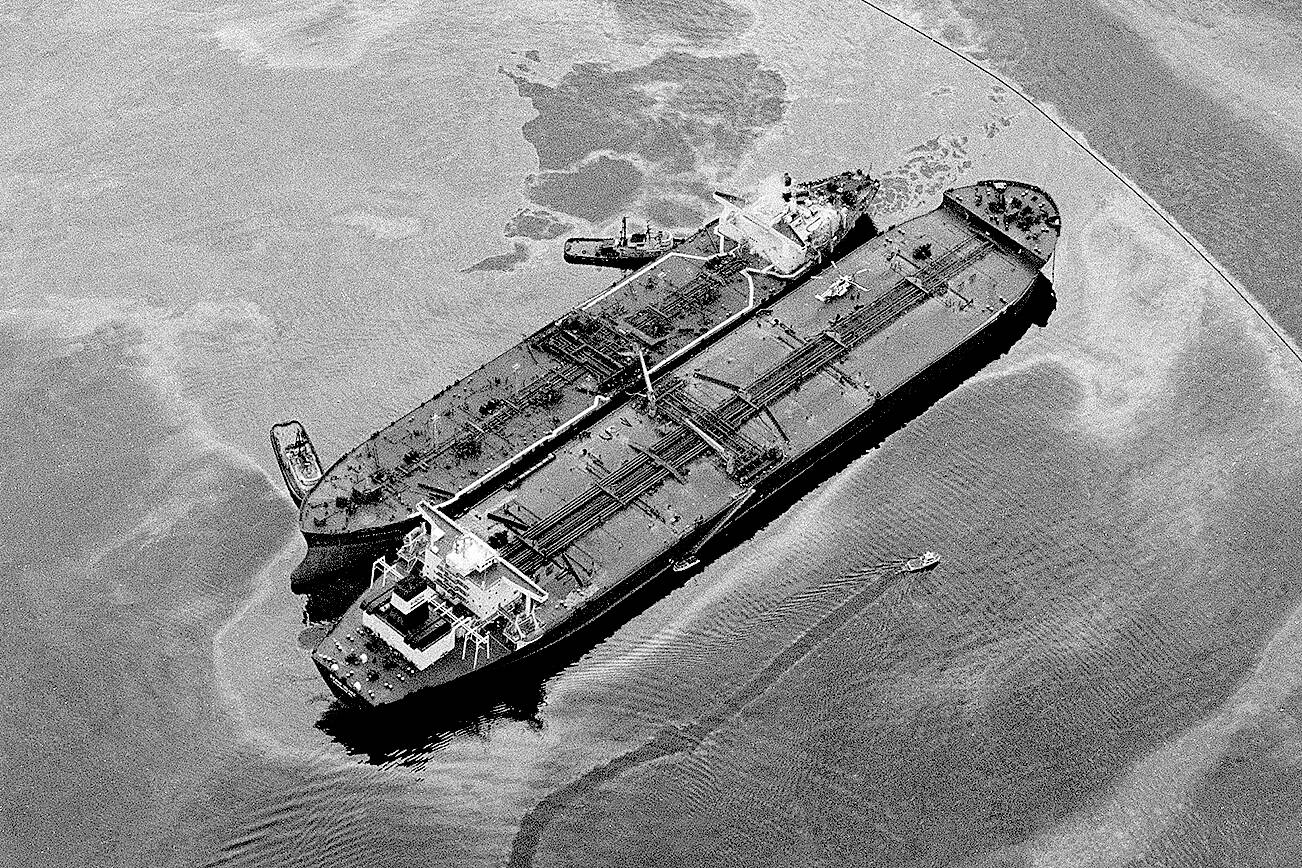When the Exxon Valdez ran aground in Prince William Sound 35 years ago, and the spilled oil spread into the Gulf of Alaska, then up into Cook Inlet and Kachemak Bay, local people sprang to respond long before Exxon provided any help.
Marge Tillion (the quickest responder) immediately compiled a complete list of needed equipment; Marion Beck rescued oiled seals; Nancy Hillstrand formed a team to clean otters; Gail Parsons formed the Area Recovery Coalition (ARC); Charlotte Adamson ran bird rescue operations; Annette Bellamy was begged to do the thankless job of putting local fishing boats on the Exxon payroll; and a few good men also helped with mitigation.
Meanwhile, the Multi Agency Command group was what you would expect of bureaucrats from three levels of government plus spill company representatives slowly fumbling along. Prominent marine and terrestrial scientist Dave Erikson was perhaps their mildest critic saying, “It was not their finest hour.”
The outstanding member was John Michaelson of Seldovia. In his frustration he flew to Valdez to make a citizen’s arrest of an Exxon rep to bring some action to southern Cook Inlet.
The money from Exxon and its contractor VECO was very, very slow to arrive. Exxon sent in public relations men and lawyers before experienced oil field hands. The PR guy in Homer was Wiley Bragg — properly named, I’ll say.
Mars Cove is another mitigation story where the beach cleanup attempt was done by local organized volunteers.
A good source of information for all is Walt Sonen, founder of the Seldovia Oil Spill (SOS) Team. A great example of the pre-government response by locals was the log boom builders in Cordova, Kodiak, Seldovia and Homer.
The Homer Spit volunteers, led by Robert Archibald and Ed Schofield, put 110 folks to work building many miles of boom. The supply of ocean boom had been long since consumed in Prince William Sound. Designs with other ports were exchanged by fax machine. There were no cellphones in those days, and few computers. The Homer design was helped by a British Navy chief mate who came to show the U.S. Coast Guard how to run oil skimmers.
He had experience with log boom in oil spills from Scandinavia to South America. He pronounced our design the finest kind.
Other boom inventors included the Mitchells of NOMAR and Frank Mullens. Every merchant donated supplies: the Gear Shed, Spenard Builders Supply, Homer Hardware, Klukwan Timber. The TV cameras and other press took note of the Spit activities and the resulting publicity got VECO interested and most participants were eventually paid. It took awhile.
A funny side note was that a new VECO hand wanted to double production and ordered the boom design simplified to the point it was no good. The crew showed up at the Multi Agency Command meeting being covered by cameras. They promised a 50-chain saw chorus unless their good working design was reauthorized.
VECO/EXXON backed down immediately!
John Michaelson and North Pacific Fisheries Association representative Dan Winn got together with Congressman Don Young and Exxon Shipping President Otto Harrison and they twisted his arm until he agreed to provide a replenishable $3 million fund for Southern Cook Inlet spill response and cleanup work.
Mayor Don Gilman asked me to spend it, as he was busy enough with Resurrection Bay spill activities. He got us a new overhead Incident Command team from the U.S. Forest Service for administration; the previous team were smoke-jumpers and they were damned good, but he needed them back in Seward.
The best of the VECO hands was Ray Springer; he hired boats from Seldovia and we met them with Homer boats and aircraft in Port Chatham and asked Tim Robertson to be the commander. Suddenly they could spot oiled beaches from the air and respond.
The National Oceanic and Atmospheric Association (NOAA) had lost track of the slick at Gore Point and assumed it was over, because they flew around in a jet at 3,000 feet. The smoke jumpers got right down on the water and tasted samples and they found oil in the Inlet.
“NOAA doesn’t know” was a refrain when they said “oil won’t sink”, but Rich Corazza took a crew we hired from Underwater Construction, with waterproof movie cameras on 50-foot tethers, who filmed miles of oil debris scooting along the bottom.
One thing everybody learned was that prevention alone made sense. Cleanup is not clean and destruction of fish and wildlife habitat is long lasting. The next year, Congress passed the Oil Pollution Act of 1990 (OPA ‘90), which, among other things, mandated the Cook Inlet Regional Citizens Advisory Committee. I became the first chair of its Prevention Response and Operations Committee (PROPS). Fighting our own fight, morale was high, though the overall result was low.
Homer resident Larry Smith is co-chair emeritus of the Oil Reform Alliance, which advocates for stronger anti-pollution measures in law and regulation, against tax breaks and for fair share royalties from oil and gas production.


